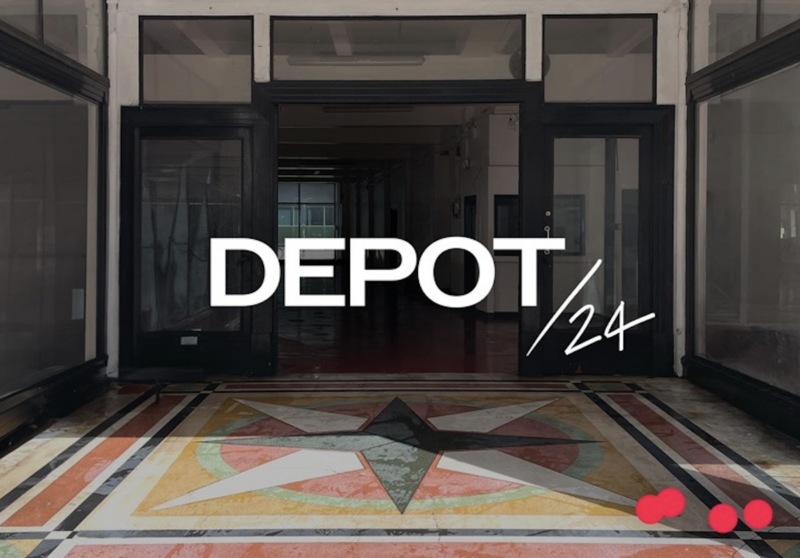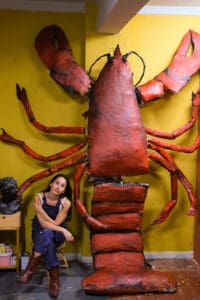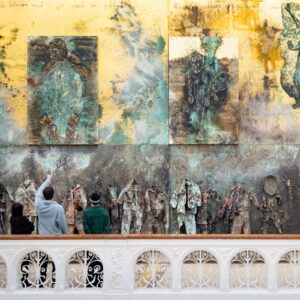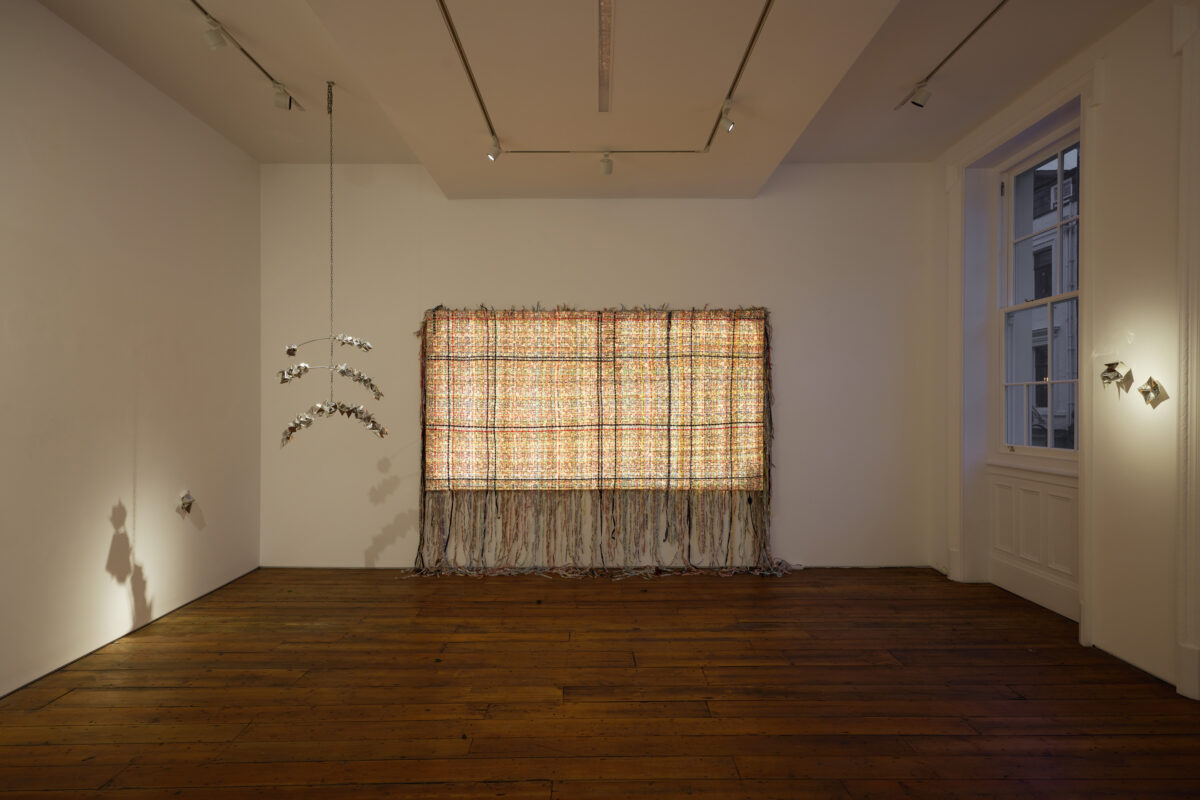
Georgina Odell’s inaugural solo show Childhood Souvenirs at Soho Revue is an exploration of childhood and making sense of the past.
Metal fortune tellers fold from the ceiling, others cluster across the walls, and school name tags slip and tumble into each other to create a woven wall. What at once appears as a fragmented collection of memories, gradually unfolds into something more stable and solid.
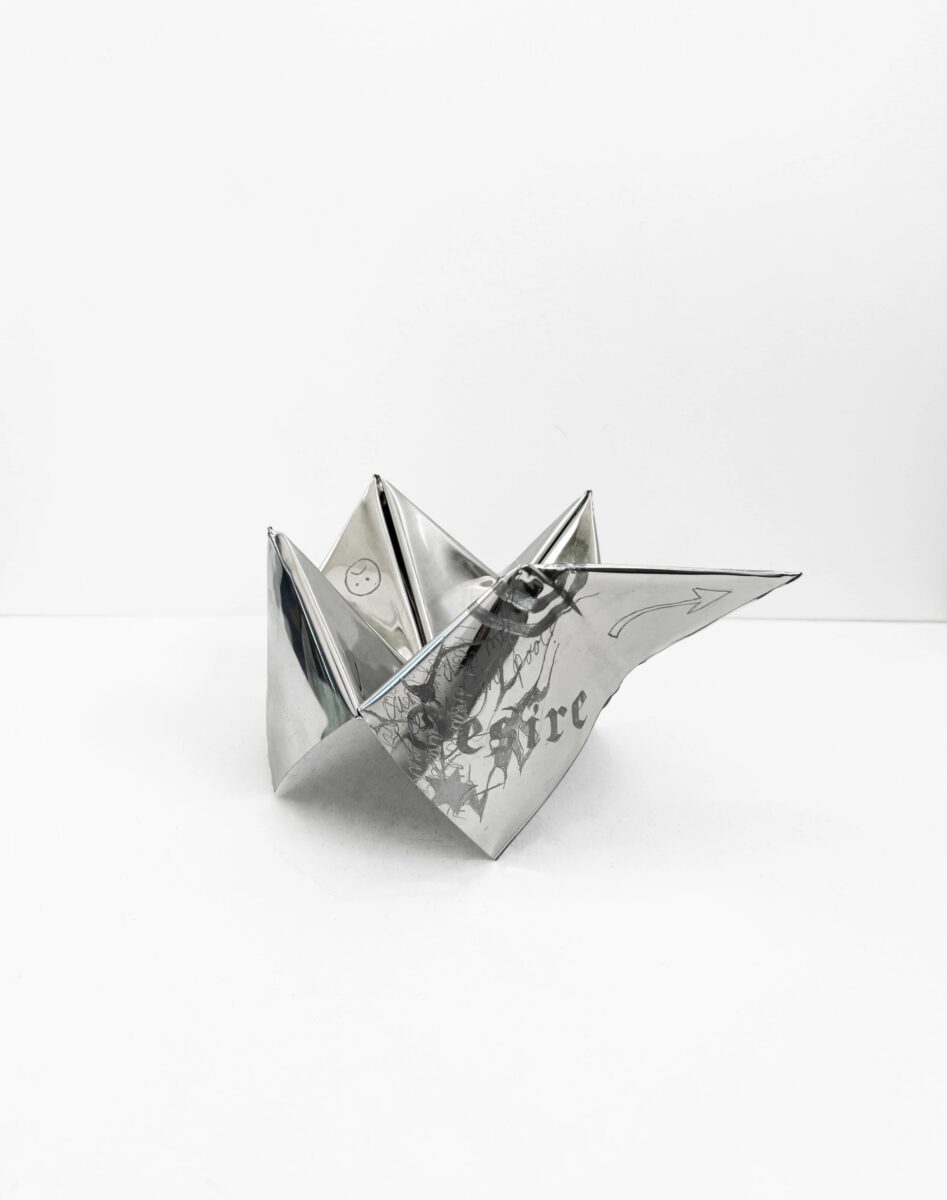
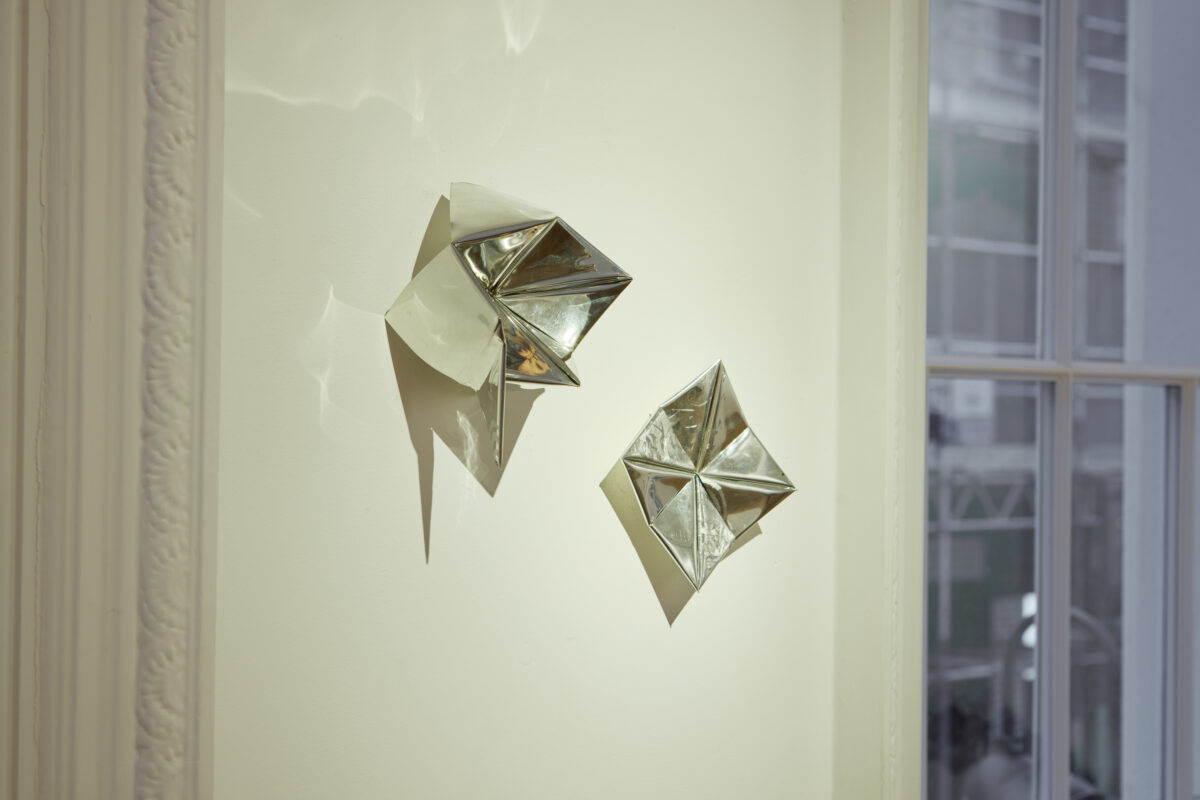
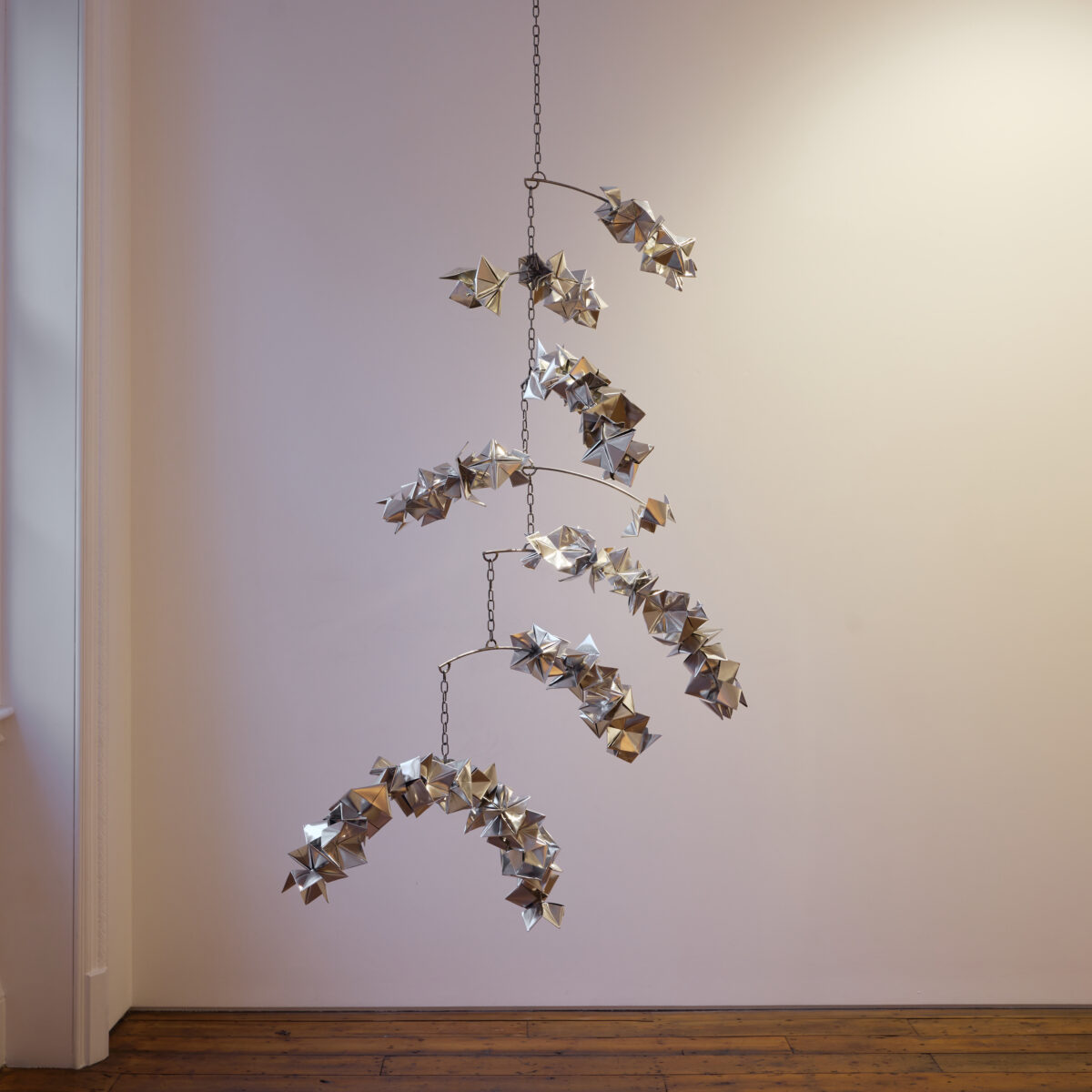
Drawing on autobiographical references from her own childhood, Odell blends her deeply personal memories with those of the collective childhood experience. Central to the exhibition is a large textile work, The Unreliable Narrator, where the very materials, laden with nostalgia, become symbols that are both familiar and unexpectedly transformed. School name labels reveal not names, but in fact diaristic thoughts and confessional recollections.
Familial memories try to speak out through The Unreliable Narrator, but in its very making through the criss-cross, warp and weft, words and phrases become obscured. The sentences come out of the work speaking over themselves as a frantic chatter of emotion. The noise of these memories is loud; woven from scraps, it forms a tangled story, embodied in a textile piece that can never offer a complete picture. The overlapping and at times, conflicting nature of memories speaks out within this work, reflecting how self-narratives are rarely linear or coherent.
And yet, for all its misguiding abilities, language becomes a way for us to attempt to make sense
of our lives. Words are unveiled in various expressions throughout the exhibition, from the frenzied murmurs of the weaving and the layered engravings reminiscent of years of vandalised school tables. Others speak out in more shy and secretive whispers, hidden behind the folds of metal. This interplay becomes a subtle symbol of the tension between remembering, preserving, and letting go.
Odell takes the fortune teller game we played as children as a playful symbol which she subverts through material metamorphosis. As we now find ourselves in the future, all grown up and no longer playing, the rustling paper of the fortune teller becomes rigid, and an object once conceived as playful transforms into something sharp and unsettling. The transformation of paper into metal transcends a mere shift in material, it memorialises the words found within the folds of the fortunes. By becoming something more permanent, our fortunes become fixed, similar to how our pasts come to define us as adults.
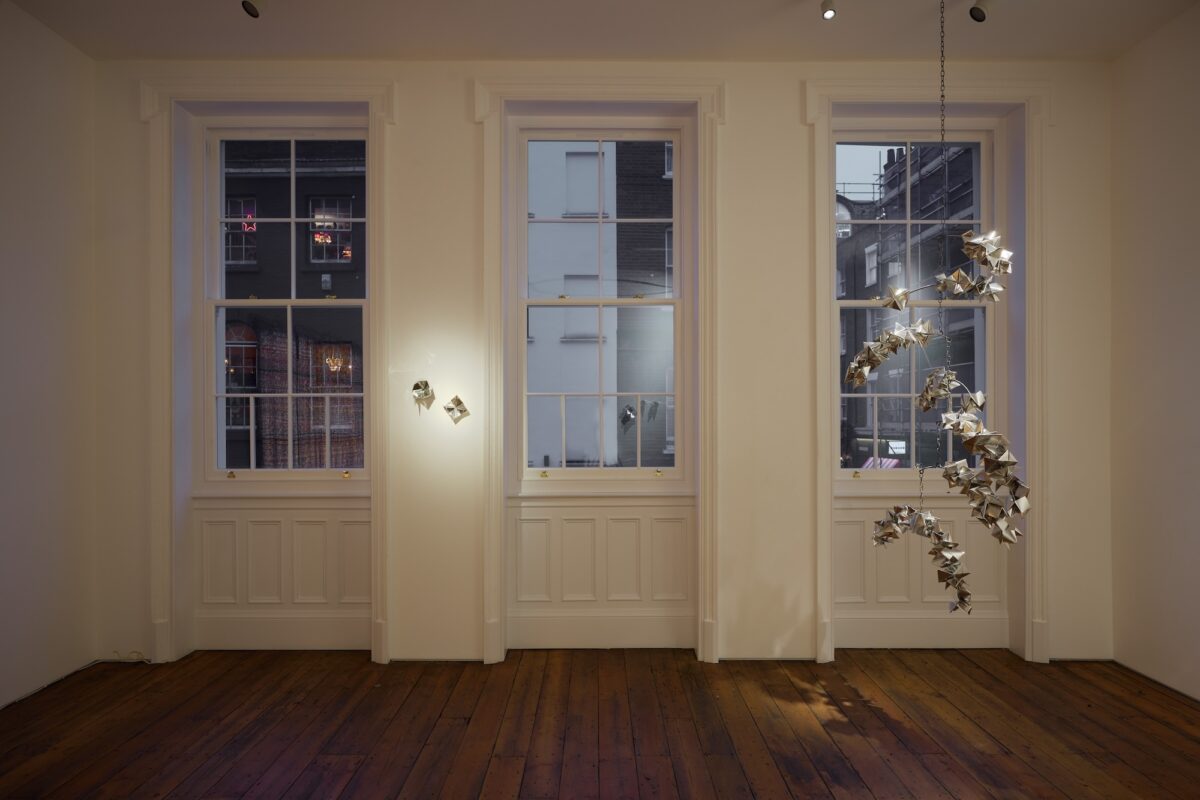
Throughout the show, we see these nostalgic objects transforming; thread becomes structure, and paper becomes metal. Odell assures us that whilst our process of becoming is built on unstable ground, over time we can weave together a fuller and more secure picture.
Georgina Odell, Childhood Souvenirs – 8th February 2025, Soho Revue
About the artist
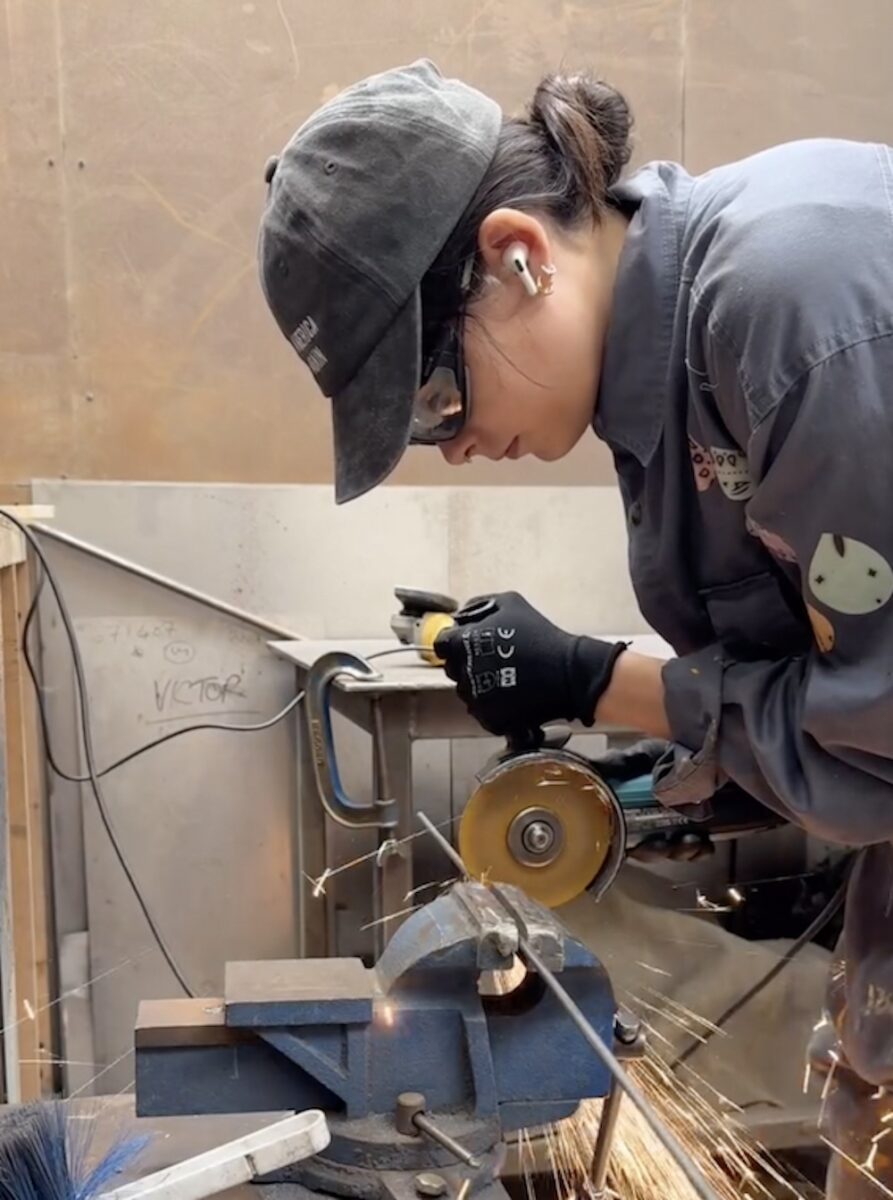
Georgina Odell is a recent graduate of the BA Fine Art and History of Art program at Goldsmiths.
Her work delves into autobiographical themes, drawing from childhood memories, the complexities of familial relationships, and the ways we recount stories and preserve memories. By weaving nostalgia into her practice, Odell highlights the emotional resonance of materials and objects. For instance, she transforms school name labels into narrative tools and reimagines paper fortune tellers as sculptural pieces by crafting them from steel.
Odell’s creative influences include the confessional poetry of Audre Lorde and Anne Sexton, as well as music and songwriting, particularly the work of Adrienne Lenker, whose lyrics capture the delicate nuances of human relationships.
Words and writing play a pivotal role in her practice, with narratives emerging in fragments—stitched into fabric, etched onto metal, or embedded within the textures of her work. Odell is fascinated by the dual nature of language: its power to reveal and liberate, but also its capacity to deceive. Words can honor a story or undermine it, proving themselves as both tools of expression and objects of mistrust.


